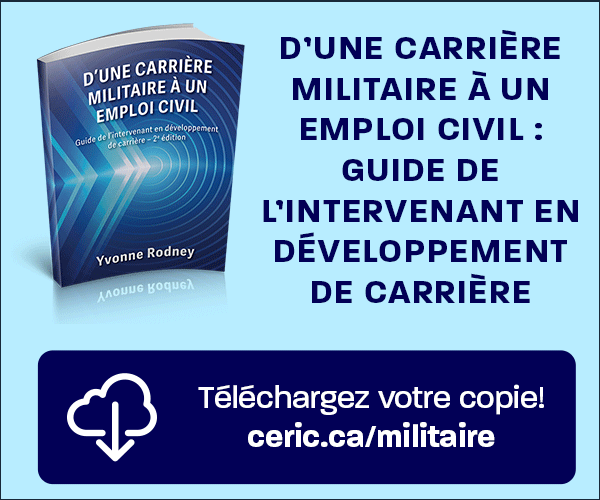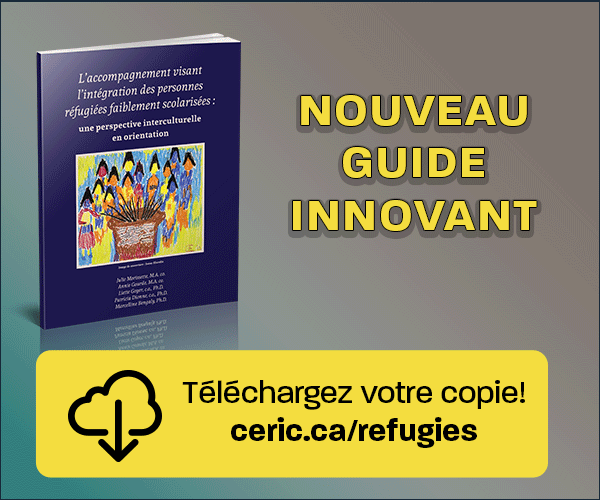Perspectives de carrière pour les professionnels de la gestion des ressources humaines au Portugal
DOI :
https://doi.org/10.53379/cjcd.2025.402Mots-clés :
carrière protéiforme, carrière sans frontières, gestion de carrière, gestion des ressources humaines, les professionnels de la gestion des ressources humaines, PortugalRésumé
La recherche menée avait pour but d'analyser les attitudes des professionnels des ressources humaines à l'égard de la gestion de leur carrière. Les attitudes à l'égard des carrières protéiformes et sans limites ont été étudiées, ainsi que la mesure dans laquelle les facteurs sociodémographiques, tels que le salaire, le sexe et le diplôme universitaire, influencent ces attitudes. Au total, 732 professionnels des ressources humaines travaillant dans des entreprises privées au Portugal ont participé à l'étude. La méthodologie comprenait une approche d'échantillonnage de commodité non probabiliste, avec une enquête détaillée couvrant des dimensions telles que les attitudes de carrière autogérée, les attitudes de carrière guidées par des valeurs, les attitudes de carrière sans limites et les attitudes de carrière facilitant la mobilité. Les résultats montrent que la plupart des professionnels ont des attitudes de carrière protéiformes et sans limites. D'autres résultats de recherche montrent que : (1) ceux qui ont des salaires plus élevés ont des niveaux plus élevés d'attitudes de carrière protéiformes et illimitées ; (2) les professionnels masculins et (3) ceux qui ont fait des études supérieures montrent une prévalence plus élevée d'attitudes protéiformes et illimitées par rapport aux professionnels féminins et à ceux qui n'ont pas fait d'études supérieures. Cette étude met en lumière les attitudes de carrière des professionnels portugais des ressources humaines. Les résultats contribuent de manière significative à notre compréhension des concepts modernes de carrière, suggérant des pistes pour de futures recherches.
Références
Armstrong, M., & Taylor, S. (2020). Armstrong’s handbook of human resource management practice. A guide to the theory and practice of people management. Kogan Page Publishers.
Arthur, M. B. (1994). The boundaryless career: A new perspective for organizational inquiry. Journal of Organizational Behavior, 15(4), 295–306, https://doi.org/10.1002/job.4030150402
Arthur, M. B., & Rousseau, D. M. (1996). The boundaryless career: A new employment principle for a new organizational era. Oxford University Press. https://doi.org/10.1093/oso/9780195100143.001.0001
Baruch, Y. (2014). The development and validation of a measure for protean career orientation. The International Journal of Human Resource Management, 25(19), 2702–2723. https://doi.org/10.1080/09585192.2014.896389
Baruch, Y., & Quick, J. C. (2007). Understanding second careers: Lessons from a study of US navy admirals. Human Resource Management, 46(4), 471–491. https://doi.org/10.1002/hrm.20178
Bernardo, A. B. I., & Salanga, M. G. C. (2019). Validating the protean and boundaryless career attitudes scales with filipino young adults. Cogent Psychology, 6(1), Article 1671133. https://doi.org/10.1080/23311908.2019.1671133
Briscoe, J. P., Hall, D. T., & DeMuth, R. L. F. (2006). Protean and boundaryless careers: An empirical exploration. Journal of Vocational Behavior, 69(1), 30-47. https://doi.org/10.1016/j.jvb.2005.09.003
Briscoe, J. P., Henagan, S. C., Burton, J. P., & Murphy, W. M. (2012). Coping with an insecure employment environment: The differing roles of protean and boundaryless career orientations. Journal of Vocational Behavior, 80(2), 308–316. https://doi.org/10.1016/j.jvb.2011.12.008
Briscoe, J. P., & Finkelstein, L. M. (2009). The ‘‘new career’’ and organizational commitment: Do boundaryless and protean attitudes make a difference? Career Development International, 14(3), 242–260. https://doi.org/10.1108/13620430910966424
Briscoe, J. P., & Hall, D. T. (2006). The interplay of boundaryless and protean careers: Combinations and implications. Journal of Vocational Behavior, 69(1), 4–18. https://doi.org/10.1016/j.jvb.2005.09.002
Cohen, L., & Mallon, M. (1999). The transition from organizational employment to portfolio working: Perceptions of ‘boundarylessness’. Work, Employment and Society, 13(2), 329–352. https://doi.org/10.1177/09500179922117962
Dessler, G. (2024). Human resource management (17th ed.). Pearson.
De Vos, A., & Cambré, B. (2016). Career management in high-performing organizations: A set-theoretic approach. Human Resource Managmenet, 56(3), 501-518. https://doi.org/10.1002/hrm.21786
De Vos, A., & Soens, N. (2008). Protean attitude and career success: The mediating role of self-management. Journal of Vocational Behavior, 73(3), 449–456. https://doi.org/10.1016/j.jvb.2008.08.007
Direnzo, M. S., Greenhaus, J. H., & Weer, C. H. (2015). Relationship between protean career orientation and work–life balance: A resource perspective. Journal of Organizational Behavior, 36(4), 538–560. https://doi.org/10.1002/job.1996
Greenhaus, J. H., Callanan, G. A., & DiRenzo, M. (2008). A boundaryless perspective on careers. In J. Barling, & C. L. Cooper (Eds.), The SAGE Handbook of Organizational Behavior: Volume I – Micro Approaches (pp. 277–299). https://doi.org/10.4135/9781849200448
Hall, D. T. (1976). Careers in organizations. Goodyear Pub. Co.
Hall, D. T. (1996). Protean careers of the 21st Century. Academy of Management Perspectives, 10(4), 8–16. https://doi.org/10.5465/ame.1996.3145315
Hall, D. T. (2002). Careers In and Out of Organization. Sage Publications, Inc. https://doi.org/10.4135/9781452231174
Hall, D. T. (2004). The protean career: A quarter-century journey. Journal of Vocational Behavior, 65(1), 1–13. https://doi.org/10.1016/j.jvb.2003.10.006
Herrmann, A., Hirschi, A., & Baruch, Y. (2015). The protean career orientation as predictor of career outcomes: Evaluation of incremental validity and mediation effects. Journal of Vocational Behavior, 88, 205–214. https://doi.org/10.1016/j.jvb.2015.03.008
Inkson, K. (2006). Protean and boundaryless careers as metaphors. Journal of Vocational Behavior, 69(1), 48–63. https://doi.org/10.1016/j.jvb.2005.09.004
Landis J. R., & Koch G. G. (1977). The measurement of observer agreement for categorical data. International Biometric Society, 33(1), 159-174. https://www.jstor.org/stable/2529310
Mirvis, P. H., & Hall, D. T. (1994). Psychological success and the boundaryless career. Journal of Organizational Behavior, 15(4), 365–380. https://doi.org/10.1002/job.4030150406
Oliveira, M. Z., Zanon, C., Silva, I. S., Pinhatti, M. M., Gomes, W. B., & Gauer, G. (2010). Validação da versão brasileira da escala de atitudes de carreira sem-fronteiras. Arquivos Brasileiros de Psicologia, 62(3), 106-114. http://pepsic.bvsalud.org/scielo.php?script=sci_arttext&pid=S1809-52672010000300012
O’Sullivan, S. L. (2002). The protean approach to managing repatriation transitions. International Journal of Manpower, 23(7), 597–616. https://doi.org/10.1108/01437720210450789
Segers, J., Inceoglu, I., Vloeberghs, D., Bartram, D., & Henderickx, E. (2008). Protean and boundaryless careers: A study on potential motivators. Journal of Vocational Behavior, 73(2), 212–230. https://doi.org/10.1016/j.jvb.2008.05.001
Sullivan, S. E., & Arthur, M. B. (2006). The evolution of the boundaryless career concept: Examining physical and psychological mobility. Journal of Vocational Behavior, 69(1), 19–29. https://doi.org/10.1016/j.jvb.2005.09.001
Susanto, P. C., Soehaditama, J. P., & Benned, M. (2023). Determination of Motivation and Career Development: Analysis of Training, Competence. Proceeding International Conference on Religion, Science and Education, 2, 273–279. https://sunankalijaga.org/prosiding/index.php/icrse/article/view/921
Ulrich, D., & Dulebohn, J. H. (2015). Are we there yet? What’s next for HR?. Human Resource Management Review, 25(2), 188–204. https://doi.org/10.1016/j.hrmr.2015.01.004
Vardy, Y., & Kim, S. H. (2007). Considering the darker side of careers: Towards a more balanced perspective. In H. P. Gunz, & M. A. Peiperl (Eds.). Handbook of Career Studies (pp. 502–510). SAGE Publications Inc. https://doi.org/10.4135/9781412976107
Volmer, J., & Spurk, D. (2011). Protean and boundaryless career attitudes: Relationships with subjective and objective career success. Zeitschrift für ArbeitsmarktForschung, 43(3), 207–218. https://doi.org/10.1007/s12651-010-0037-3
Waters, L., Briscoe, J. P., Hall, D. T., & Wang, L. (2014b). Protean career attitudes during unemployment and reemployment: A longitudinal perspective. Journal of Vocational Behavior, 84(3), 405–419. https://doi.org/10.1016/j.jvb.2014.03.003
Waters, L., Briscoe, J. P., & Hall, D. T. (2014a). Using protean career attitude to facilitate a positive approach to unemployment. In M. Coetzee (Ed.). Psycho-social career meta-capacities (pp. 19–33). Springer. https://doi.org/10.1007/978-3-319-00645-1_2
Wiernik, B. M., & Wille, B. (2018). Careers, career development, and career management. In D. S. Ones, N. Anderson, C. Viswesvaran, & H. K. Sinangil (Eds.). The SAGE Handbook of Industrial, Work and Organizational Psychology (pp. 547–585). SAGE Publications Ltd. https://doi.org/10.4135/9781473914964
Wolff, H.-G., & Moser, K. (2009). Effects of networking on career success: A longitudinal study. Journal of Applied Psychology, 94(1), 196–206. https://doi.org/10.1037/a0013350

Téléchargements
Publié-e
Comment citer
Numéro
Rubrique
Licence
(c) Tous droits réservés La Revue canadienne de développement de carrière 2025

Cette œuvre est sous licence Creative Commons Attribution - Pas d'Utilisation Commerciale - Pas de Modification 4.0 International.











